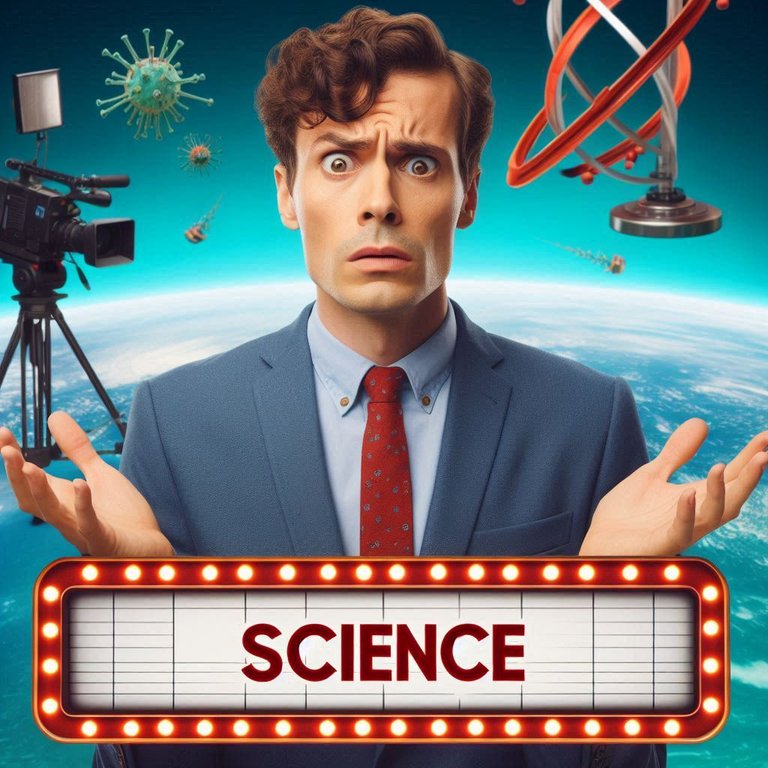As a middle-aged person, about to turn 45 (you can check my Amazon wish list! (I know it's a bad joke)), I have not had the opportunity to read scientific or sometimes pseudoscientific topics until the late 90s, and from my personal experience and what I had at hand from the media in general, such as newspapers or magazines, topics related to science were hardly covered.
In fact, I think the lack of coverage of this topic, at least in my country, is due to the educational deficit we have, and I'm not talking about scientific subjects, as even general subjects like mathematics or reading comprehension are among the lowest ranked worldwide.
Based on that foundation, we can say that the general media knows that these are topics the general population would not read or watch with interest, and would very likely end up channel surfing.
This adds to a new problem, which is a consequence of the previous one: the new journalists and communicators are products of that poor educational system, so, like any human being would, they do not get involved in topics they could not understand.
So for people who wanted to read about science, in the pre-internet days, they turned to specialized magazines, sometimes more sensationalist than academic.
In my country, Paraguay, scientific-themed magazines were scarce, I can't say they were non-existent, but the closest circulating magazines were Conozca Más, Más Allá de la Ciencia, and Enigma, which certainly among their varied themes, used to include sections on science and technology.
In summary, the general media in my country DO NOT cover scientific topics. And in my view, if the general education of the population does not improve, it would be very difficult for this to change.*

Image generated by Copilot
Como persona de mediana edad, a punto de cumplir 45 años (pueden revisar mi lista de deseos de Amazon! ( Es una mala broma, lo sé)), no he tenido oportunidad de leer temas científicos o a veces pseudocientíficos sino desde los tardíos años 90, y por mi experiencia personal y lo que tenía a mano de los medios en general, como periódicos o revistas, casi no se trataban temas referentes a la ciencia.
De hecho, creo que la falta de cobertura de este tema, al menos en mi país, se debe al déficit educativo que tenemos, y no hablo de las materias científicas, ya que inclusive materias generales como matemáticas o comprensión lectora están entre los últimos puestos de todo el mundo.
A partir de esa base, podemos decir que los medios de comunicación en general, saben que son temas que la población en general no leería, o vería con interés, y terminarían muy posiblemente haciendo zapping.
A eso se suma un nuevo problema, subyacente del problema anterior: los nuevos periodistas y comunicadores son producto de ese pésimo sistema educativo, entonces, como cualquier humano haría, no se involucran en temas que no podrían comprender.
Así que para las personas con deseos de leer sobre ciencias, en las épocas previas a internet, recurrían a revistas temáticas, algunas veces mas sensacionalistas que académicas.
En mi país, Paraguay, las revistas de temática científica, eran escasas, no puedo decir inexistentes, pero lo más parecido que circulaba, eran las revistas Conozca Más, Más Allá de la Ciencia y Enigma, que ciertamente entre su variada temática, solían incluir secciones de ciencia y tecnología.
En resumen, los medios generales de comunicación de mi país NO tratan sobre temas científicos. Y segun mi punto de vista, si no mejora la educ6en general de la población sería muy difícil que esto cambie.
This is an entry for the #STEM contest promoted by @gwajnberg untill 02/13/2025. See the promt and rules in this topic.
*Translated to English with Copilot




